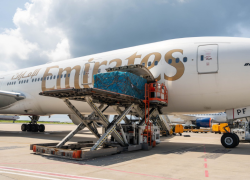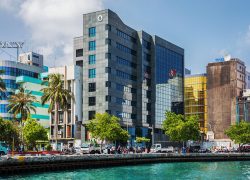A strong rise in airport-related tax revenue has been recorded by the Ministry of Finance and Planning, reflecting a vibrant recovery in travel and strategic adjustments to the tax structure at Velana International Airport (VIA). According to the Ministry’s latest Weekly Fiscal Development Report, the government collected over USD 142.8 million in combined Departure Tax and Airport Development Fee (ADF) by August 28 this year, marking an impressive 46% growth compared to the USD 97.3 million recorded in the same period last year.
The breakdown of these figures reveals significant increases across both categories of airport taxation. Departure Tax collections alone reached USD 71.3 million, showing a substantial 52.5% increase from the USD 48.4 million collected in the corresponding period of the previous year. The ADF mirrored this growth trend, generating an equal amount, USD 71.3 million representing a 51.5% rise from the USD 49.4 million gathered up to the end of August last year.
The sharp upturn in revenue aligns with revised tax rates that came into force on 1 December of the previous year. These updated charges vary by class of travel and citizenship, with foreign passengers generally incurring higher fees than local travelers. Under the current structure, foreign passengers pay USD 50 in Departure Tax when flying economy, while Maldivians pay USD 12. The rate increases to USD 60 for business class and USD 90 for first class, for both local and foreign passengers. Travelers on private jets are charged USD 120. The ADF follows a similar tiered approach, with foreign passengers in economy paying USD 50, while business and first-class passengers pay USD 120 and USD 240, respectively. Those traveling via private jets incur an ADF of USD 480.
Certain exemptions continue to apply for both taxes. Children under two years of age, passengers in transit, and individuals with diplomatic immunity are exempt from the Departure Tax. ADF exemptions extend to individuals with diplomatic immunity and those transiting directly through the country without disembarking for local stay.
The report highlights that this surge in tax collections reflects more than just policy change—it also points to sustained growth in tourist arrivals, which remains the cornerstone of the Maldives’ economic engine. The upward trajectory in arrivals since the post-pandemic reopening has generated higher volumes of departing passengers, contributing directly to increased tax income from aviation-related sources.
This positive fiscal performance not only underscores the importance of the tourism and aviation sectors to national revenue but also demonstrates the effectiveness of the government’s strategic tax reforms. The financial outcome provides a stable base to support continued investment in airport infrastructure and public services, reinforcing the Maldives’ position as a premier global tourist destination.
The latest figures from the Ministry of Finance offer an encouraging glimpse into the country’s economic momentum, with tourism-fueled aviation revenue playing a central role in recovery and growth.



 advertisment
advertisment




 advertisment
advertisment





